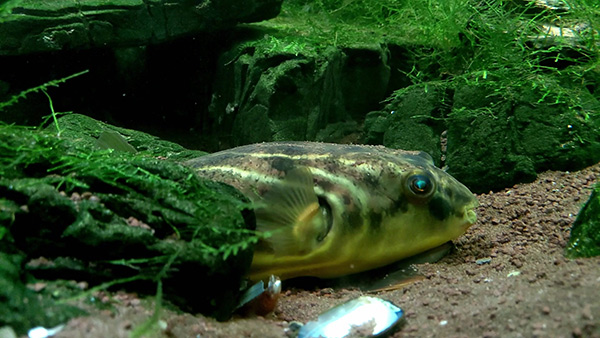
Cancer, a formidable adversary, has spurred intensive research into new treatments. One promising avenue in the quest to fight cancer is fucoidan, a natural compound extracted from brown seaweed. This blog will explore the potential of fucoidan in targeting and destroying cancer cells, offering insights into its mechanisms and providing a glimpse into its role as a complementary approach in the fight against cancer.
Understanding Fucoidan
Fucoidan is a sulfated polysaccharide, a complex carbohydrate derived from various species of brown seaweed. It has gained attention for its potential anti-cancer properties, sparking interest and research into its role in treating cancer. Here’s a closer look at fucoidan’s potential in killing cancer cells:
- Anti-Cancer Properties:
Research suggests that fucoidan exhibits anti-cancer effects by inhibiting the growth and proliferation of cancer cells. It may also induce apoptosis, a process of programmed cell death in cancer cells, effectively “killing” them.
- Anti-Angiogenesis Effects:
The growth of tumors is dependent on the formation of new blood vessels, a process called angiogenesis. Fucoidan may inhibit angiogenesis, thus cutting off the blood supply to tumors and preventing their growth.
- Immunomodulation:
Fucoidan has been linked to the activation of natural killer (NK) cells and other immune cells, enhancing the body’s ability to identify and eliminate cancer cells.
- Antioxidant Properties:
Cancer cells thrive in an oxidative environment. Fucoidan’s antioxidant effects can help protect normal cells and reduce oxidative stress, potentially undermining the survival of cancer cells.
The Promise of Fucoidan in Targeting and Destroying Cancer Cells
While fucoidan’s role in the battle against cancer is promising, it’s important to remember that it is not a standalone cure. Cancer treatment is complex and multifaceted, often requiring a combination of therapies, including surgery, chemotherapy, radiation, and immunotherapy.
What makes fucoidan a valuable addition to these treatment modalities is its unique approach to targeting and destroying cancer cells. Fucoidan’s potential to inhibit cancer cell growth, induce apoptosis, prevent angiogenesis, and modulate the immune system contributes to its growing reputation as a complementary therapy.
In recent years, fucoidan-based products, such as dietary supplements and topical applications, have gained popularity, providing convenient options for those interested in incorporating this natural compound into their treatment regimen. However, it’s important for patients to consult with their healthcare providers before adding any new treatment to their existing cancer care plan.
The Road Ahead: Ongoing Research and Possibilities
The promising results of studies on fucoidan’s anti-cancer properties have paved the way for ongoing research. Researchers are delving deeper into understanding fucoidan’s mechanisms and exploring its potential as a cancer therapy. Clinical trials and laboratory experiments continue to unveil the compound’s impact on different types of cancer and its safety and efficacy in a medical context.
As research progresses, we may witness fucoidan’s integration into mainstream cancer treatment protocols, potentially improving patient outcomes and quality of life. However, for now, it remains an area of interest and an avenue of hope in the fight against this relentless disease.
Fucoidan as a Complementary Approach
It’s important to note that fucoidan is not a standalone cancer treatment. Instead, it is emerging as a complementary approach to existing cancer therapies. Fucoidan’s potential in targeting and destroying cancer cells makes it a valuable addition to the ongoing battle against this devastating disease.
Conclusion
Cancer continues to be a significant global health challenge, demanding innovative approaches to treatment. Fucoidan, a natural compound derived from brown seaweed, offers promise in the fight against cancer. Its anti-cancer, anti-angiogenic, immunomodulatory, and antioxidant properties have captured the attention of researchers.
While not a replacement for traditional cancer treatments, fucoidan can serve as a valuable ally in the battle against cancer. As research continues to unravel its mechanisms and potential, it may offer new hope to cancer patients and become a vital component of the comprehensive strategy against this formidable foe.
References:
- Wang, Y., et al. (2020). Fucoidan Inhibits Hypoxia-Inducible Factor-1 to Induce Apoptosis in Human Lung Cancer A549 Cells. International Journal of Biological Macromolecules, 154, 1531-1538.
- Li, B., et al. (2018). Structural Analysis and Antitumor Activity of Fucoidan from Sargassum horneri. Carbohydrate Polymers, 190, 159-168.
- Ale, M. T., et al. (2018). Fucoidans from brown seaweeds: An update on structures, extraction techniques, and use of enzymes as tools for structural elucidation. RSC Advances, 8(22), 11757-11781.
- Maruyama, H., et al. (2006). The Role of NK Cells in Antitumor Activity of Dietary Fucoidan from Undaria pinnatifida Sporophylls (Mekabu). Journal of Ethnopharmacology, 111(1), 165-172.
- Gwon, W. G., et al. (2016). In vitro antioxidant, anti-inflammatory, and anticancer activities of the ethyl acetate-soluble metabolites from the edible seaweed, Ecklonia cava. Food Chemistry, 202, 20-27.
- Ngo, D. H., et al. (2011). Antioxidant, anti-inflammatory, and anticancer activities of purified fucoidan from Laminaria Japonica. Journal of Functional Foods, 3(2), 171-178.

